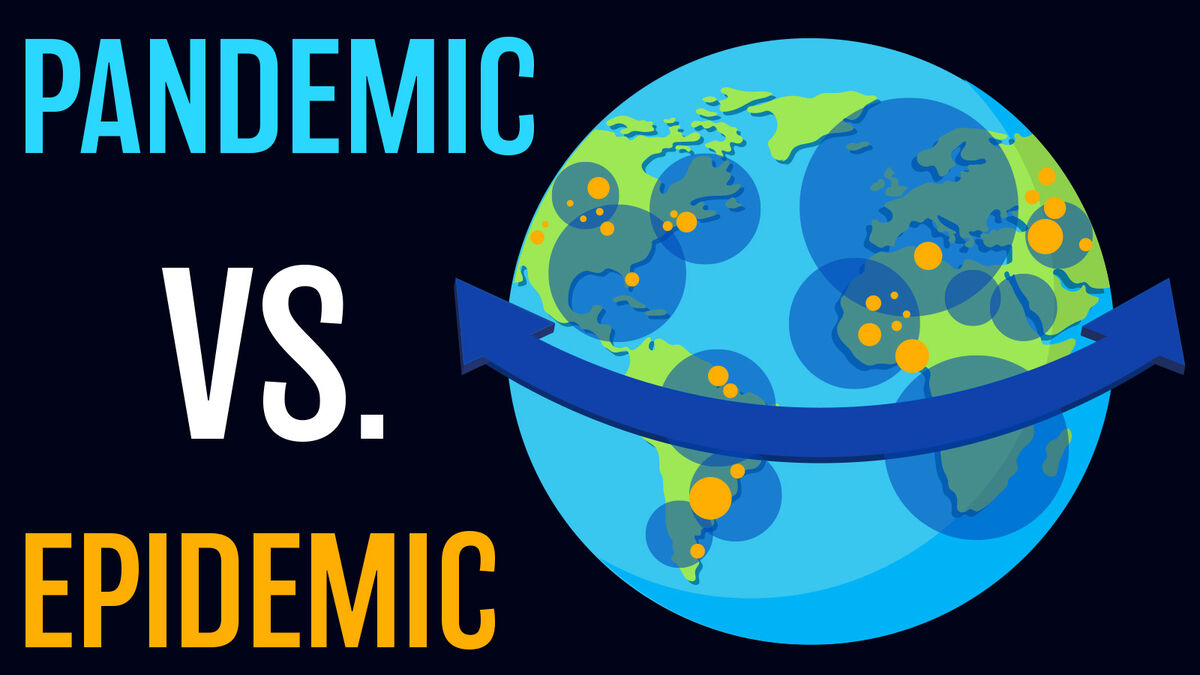
Although the differences are subtle, understanding the meanings of epidemic and pandemic can help you make sense of world news and historical events. Learn about the differences between these two commonly misused words, both of which relate to the spread of infectious disease.
What Is an Epidemic?
A normal amount of disease is expected anywhere in the world, but when the amount of that disease is higher than normal, it becomes an epidemic. According to the Centers for Disease Control and Prevention (CDC), an epidemic happens when an infectious disease becomes more prevalent than normal in a population. Epidemics are similar to outbreaks, but they are not limited to a specific geographic area.
What Is a Pandemic?
A pandemic is an epidemic that has increased spread. According to the CDC, an epidemic becomes a pandemic when the disease has spread over many countries or continents. Similarly, the World Health Organization (WHO) defines it as “the worldwide spread of a new disease.”
Similarities Between Pandemics and Epidemics
There are many similarities between these two terms. The overlap in their meanings and usage accounts for some of the confusion regarding which is correct in various situations.
Both Can Be Adjectives
Both “pandemic” and “epidemic” can be used as adjectives. For example, you can describe a noun by adding one of these terms before it:
- In 1918, the world was changed by pandemic influenza.
- With increasing prevalence in many parts of the country, Lyme disease is reaching epidemic proportions.
Both Can Be Nouns
You can also use both terms as nouns, as you can see in the following examples:
- The coronavirus pandemic of 2020 affected people around the world.
- Without a clear plan for education, many countries face an epidemic of illiteracy.
Both Have Greek Roots
Both terms trace their origin to Ancient Greece. “Pandemic” comes from the Greek word pandēmos, which means “relating to all the people.” “Epidemic” comes from the Greek word epidḗmios, which means “among the people.”
Epidemic vs. Pandemic: Key Differences
The biggest differences between these two terms involves their meanings.
A Pandemic Involves Greater Spread
A pandemic is more serious than an epidemic. Remember that a pandemic involves greater spread than an epidemic. An infectious disease may start as an epidemic. If it spreads too far and too severely, it becomes a pandemic.
Epidemics Are More Common
Because a pandemic is more severe than an epidemic, it is also rarer. You will encounter many epidemics when studying history, but this is not so for pandemics.
“Epidemic” Is Used in Other Contexts
It’s not common to see “pandemic” used in a context that does not involve an infectious disease. By comparison, “epidemic” is used more widely and generally. In a non-disease context, it can mean anything that is prevalent and spreading.
How to Choose the Right Word
When you’re deciding between “epidemic” and “pandemic,” choosing the right word is about the scope of the problem. How severe is the spread of the illness or issue? Once you determine that, you’ll be able to select the term that is correct.